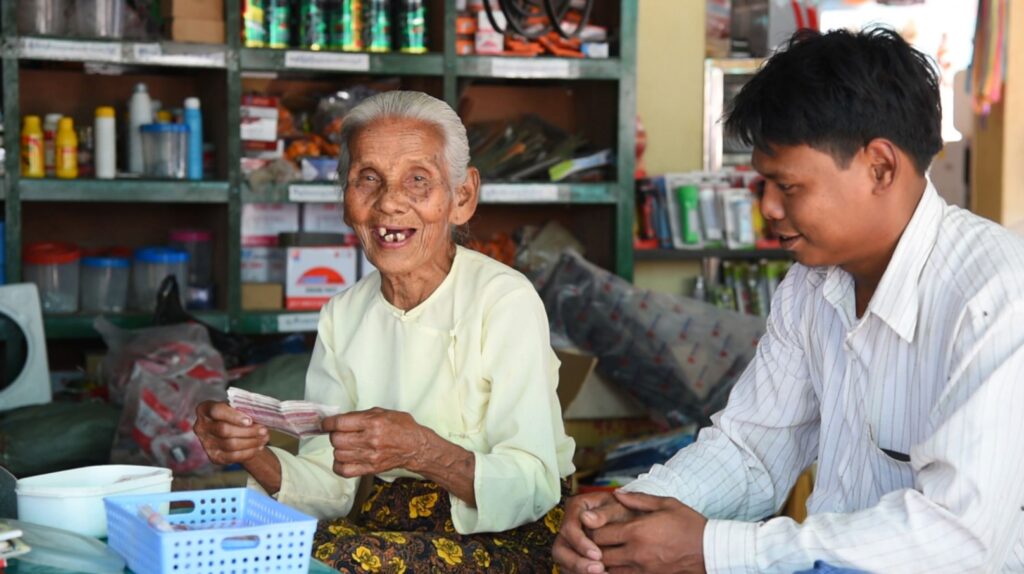
Social protection measures such as pensions or cash transfers are a fundamental tool for reducing poverty and inequality in older age. Regular cash transfers can increase older people’s access to services, particularly health care, and universal social pensions can help bridge gender disparities. Because of the huge benefits of social pensions, HelpAge advocates for inclusive social protection systems, namely in the form of universal social pensions.
In Myanmar, the Ministry of Social Welfare, Relief, and Resettlement currently implements a national pension program, targeted to people ages 90 and above, and has plans to expand eligibility of the program to people ages 85 and above. In preparation for the program’s expansion, HelpAge has worked to evaluate pension delivery options that are scalable and effective.
In Myanmar, government-provided cash transfers to eligible older adults are currently distributed manually. Manual modes of distribution can carry a heavy administrative burden as well as exposure to service and security-related risks.
In order to determine ways the program could be improved, HelpAge International initiated an assessment exploring feasible options for electronic or digital delivery of cash transfers. Based on the findings, HelpAge piloted an electronic cash transfer (ECT) project in 2018 to assess how mobile money technology could improve the efficiency and security of the social protection program.
Over the course of the ECT pilot, HelpAge tested the delivery of monthly payments (equal to 10,000 MMK or about $7 USD) to eligible older adults (between the ages of 85 and 89 years old) using different e-payment delivery methods. The pilot delivered e-payments in 205 communities (both rural and urban) across Myingyan township in the Mandalay Region of Myanmar using two mobile money providers, Wave Money and M-Pitesan. The ECT pilot demonstrated that it is possible to operationalize e-payments of social pensions within a set span of time. Since the first payment in March 2018, the pilot has delivered social pensions to around 1,000 beneficiaries aged 85–89 years.
During the pilot, HelpAge also collected important data on service delivery, program accessibility, recipient behavior, and spending patterns. For instance, the ECT pilot assessment found that monthly payments were largely spent on healthcare costs (medicine and clinic fees), food, and charitable gifts. Our monitoring also indicated that most older adults relied on family members to access payments and that there was an insufficient number of distribution points available for older people to withdraw their cash. Learnings from the ECT pilot are currently being used by the Department of Social Welfare and the Ministry of Social Welfare, Relief, and Resettlement to expand social protection programs nationally.


